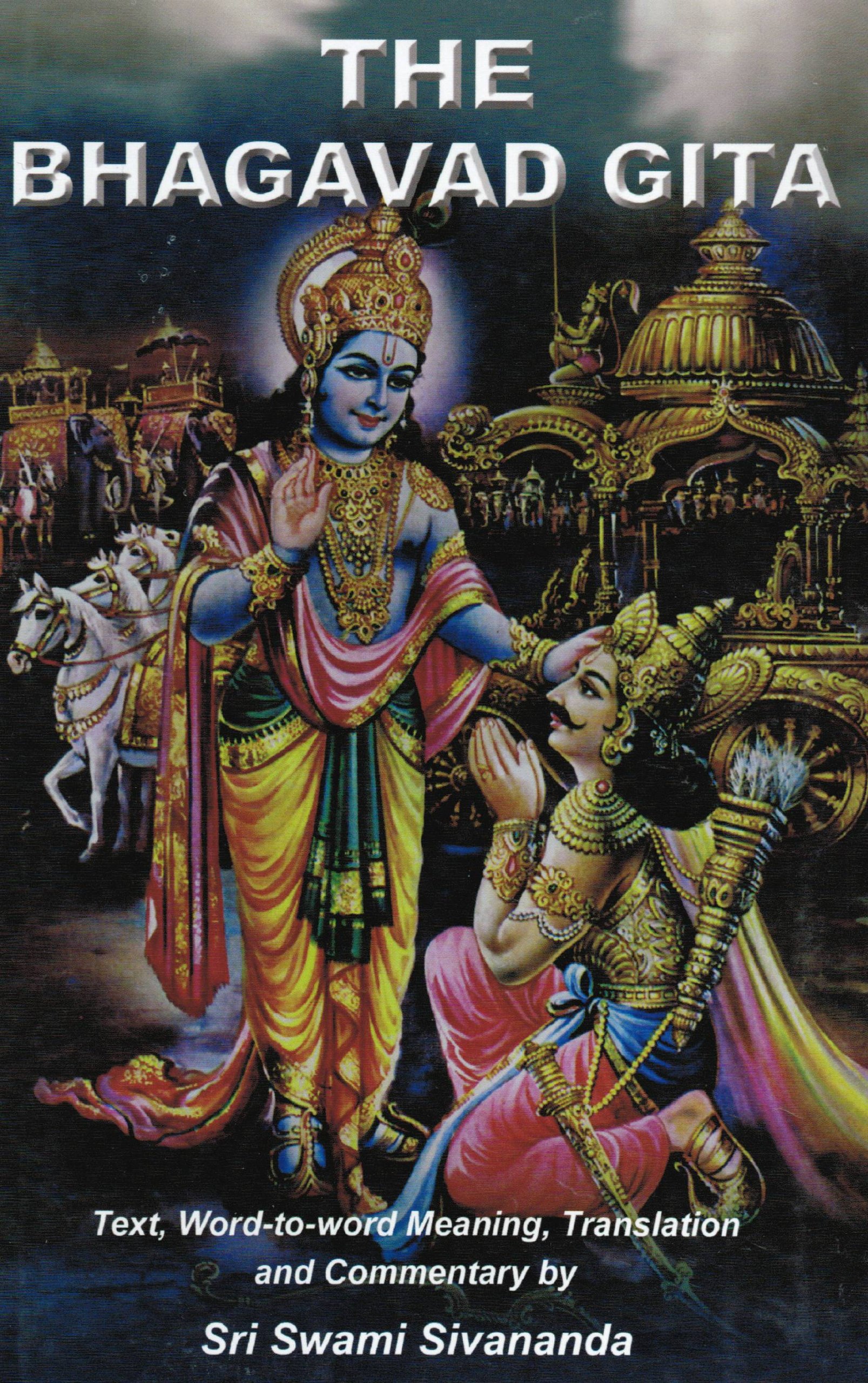BHAGAVAD GITA By SRI SWAMI SIVANANDA.pdfseeders: 6
leechers: 1
BHAGAVAD GITA By SRI SWAMI SIVANANDA.pdf (Size: 359.53 KB)
Description
Publisher: The Divine Life Trust Society; 13 edition (January 1, 2003)
Language: English ISBN-10: 8170520002 ISBN-13: 978-8170520009  The Bhagavadgita is one phase of the Tripod of Indian philosophy and culture, the other two phases being the Upanishads and the Brahmasutras. While the Upanishads lay the foundation of the loftiest reach possible for humanity and the Brahmasutras logically elucidate the intricate issues involved in the Upanishads, the Bhagavadgita blends together the Transcendent and the Immanent features of the Ultimate Reality, bringing together into an integrated whole knowledge and action, the inner and the outer, the individual and the society, man and God, all which are portrayed as facets of a Universal Operation, presenting entire life and all life as a perfectly complete organic wholeness, leaving nothing unsaid and attempting to solve every problem in life. FOREWORD The modern man in this present decade of the second half of the 20th century is greatly in need of an effective guide to light. He is groping. He sees only problems everywhere and no solutions are to be found anywhere. He does not know which way to turn, what course to adopt and how to move towards a better state of things. Therefore, his life is filled with restlessness, unhappiness and complication. The Bhagavad Gita contains words of wisdom and practical teachings that contain the answers to the above-mentioned condition of the present-day individual. The Bhagavad Gita is a message addressed to each and every human individual to help him or her to solve the vexing problem of overcoming the present and progressing towards a bright future. This holy scripture is not just an “old scripture”, nor is it just a book of “religious teachings”, nor even a Hindu holy book. It transcends the bounds of any particular religion or race, and is actually divine wisdom addressed to mankind for all times, in order to help human beings face and solve the ever-present problems of birth and death, of pain, suffering, fear, bondage, love and hate. It enables man to liberate himself from all limiting factors and reach a state of perfect balance, inner stability and mental peace, complete freedom from grief, fear and anxiety. Within its eighteen chapters is revealed a human drama. This is the experience of everyone in this world, the drama of the ascent of man from a state of utter dejection, sorrow and total breakdown and hopelessness to a state of perfect understanding, clarity, renewed strength and triumph. Each discourse holds for you an invaluable new lesson and imparts a new understanding of yourself in a marvellous way. The mystery of man, this world and God, is explained as perhaps nowhere else. The workings of your mind—the real problem to your welfare and happiness—how to overcome it, what the path to blessedness is, as also the path to perdition, the secret of self-mastery and the way to peace amidst your daily activities and duties—all these and more you will find in this great treasure. It is yours by which to enrich your life. To the Western reader I would suggest that he carefully reads through the entire book once. Then he should commence it a second time. Upon the second reading he should adopt the method of selectivity, not in reading but in what he takes from it. Such things as seem to be particularly Hindu and therefore, perhaps, not acceptable to him as a person of another faith, he can just pass by without being perturbed. But everything else that is of a purely philosophical, psychological, ethical and psychical nature,—all these he can grasp and assimilate fully. He will be wonderfully enriched and supremely blessed. His life will become new from that moment. All clouds will vanish. Light will fill the heart and mind. I assure him of this. This is the Gita. I commend this wonderful gift of God unto every man and woman, towards his or her supreme blessedness and highest welfare. Swami Chidananda 10th July, 1968 (Guru Purnima) Sharing Widget |
All Comments